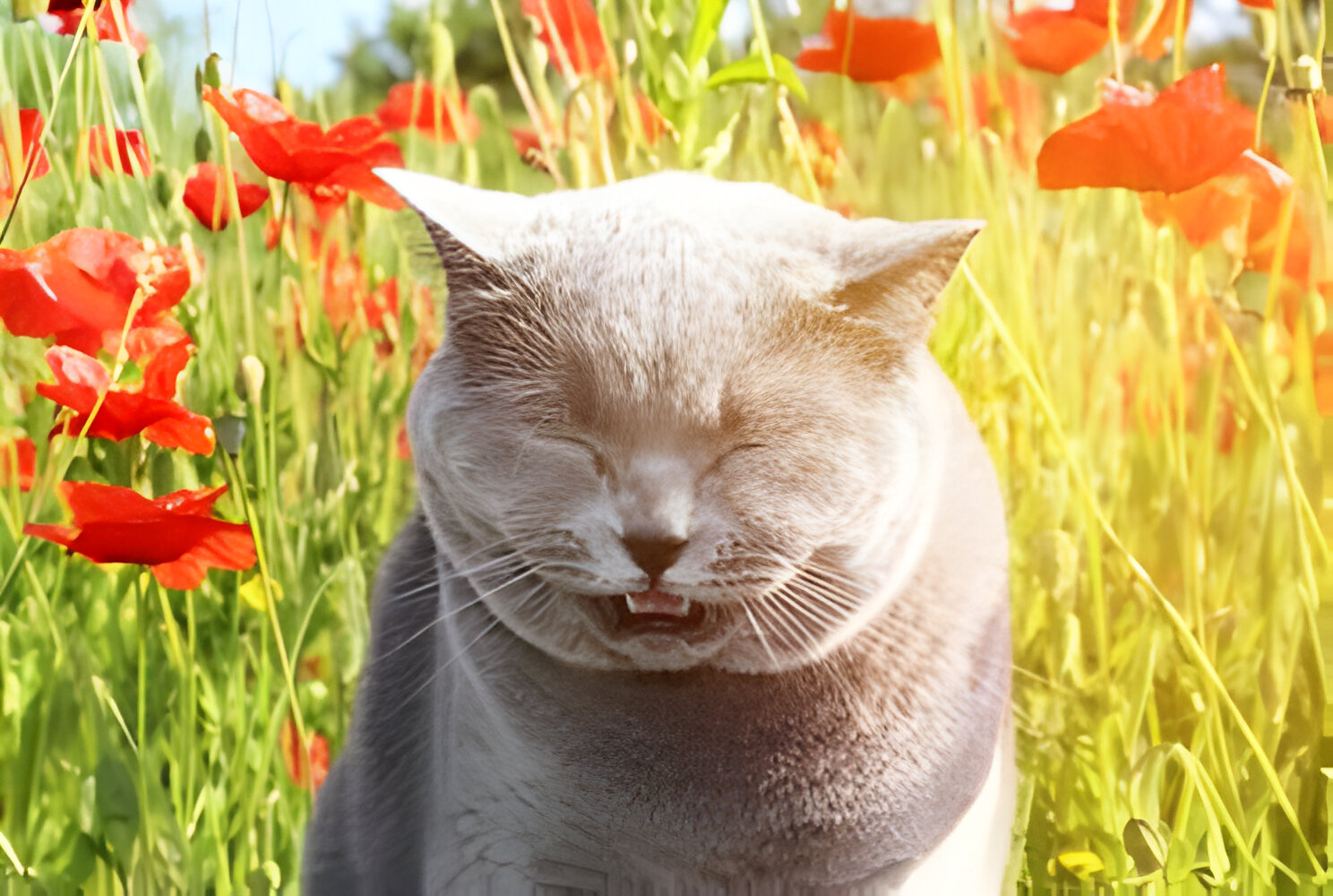Introduction: Cats, with their enigmatic behaviors and unique personalities, bring joy and companionship to millions of households worldwide. However, when a cat begins sneezing excessively or persistently, it can raise concerns for pet owners. While occasional sneezing is usually harmless and part of a cat’s natural respiratory system, persistent sneezing may indicate an underlying issue that requires attention. In this in-depth exploration, we will delve into the multifaceted reasons behind cat sneezing, ranging from benign causes to potential health concerns, empowering cat owners to better understand and care for their beloved feline companions.
Understanding Normal Cat Sneezing: Sneezing is a natural reflexive action in cats, much like in humans, designed to expel irritants or foreign particles from their nasal passages. Common triggers for sneezing in cats include dust, pollen, strong odors, or sudden temperature changes. Additionally, sneezing can occur as a reflex response to excitement or stress.
Benign Causes of Cat Sneezing:
- Environmental Irritants: Dust, pollen, cigarette smoke, and certain household cleaners are common environmental irritants that can provoke sneezing in cats. Ensuring good ventilation and minimizing exposure to these irritants can help reduce sneezing episodes.
- Allergies: Cats, like humans, can develop allergies to various substances such as pollen, mold, certain foods, or even fabrics. Allergic reactions often manifest as sneezing, nasal congestion, or watery eyes. Identifying and eliminating the allergen from the cat’s environment can alleviate symptoms.
- Foreign Objects: Cats’ innate curiosity may lead them to sniff or investigate objects that can become lodged in their nasal passages, triggering sneezing. Common foreign objects include grass, small toys, or pieces of litter. If suspected, prompt veterinary attention is necessary to remove the foreign object and prevent complications safely.
Potential Health Concerns: While occasional sneezing is typically harmless, persistent or frequent sneezing may indicate an underlying health issue that requires veterinary evaluation. Some potential health concerns associated with cat sneezing include:
- Upper Respiratory Infections (URIs): Viral or bacterial infections, such as feline herpesvirus or calicivirus, can cause symptoms like sneezing, nasal discharge, and coughing. URIs are highly contagious and may require medication to manage symptoms and prevent spreading to other cats.
- Dental Issues: Dental problems, such as periodontal disease or tooth abscesses, can lead to secondary sinus infections, resulting in sneezing and nasal discharge. Regular dental care and prompt treatment of dental issues can help prevent respiratory complications.
- Nasal Polyps or Tumors: Nasal polyps or tumors can obstruct nasal passages, leading to chronic sneezing, nasal discharge, and difficulty breathing. These conditions necessitate prompt diagnosis and may require surgical intervention for removal.
- Feline Immunodeficiency Virus (FIV) or Feline Leukemia Virus (FeLV): These viral infections weaken the immune system, making cats more susceptible to respiratory infections and other illnesses. Sneezing may be one of the symptoms of these underlying viral diseases.
When to Seek Veterinary Care: Vigilance is key when monitoring a cat’s sneezing patterns. If a cat exhibit any of the following signs, prompt veterinary care is essential:
- Persistent or frequent sneezing
- Nasal discharge (clear, yellow, or bloody)
- Difficulty breathing or wheezing.
- Loss of appetite or lethargy
- Rubbing or pawing at the face or nose
Treatment Options and Management: The treatment approach for cat sneezing depends on the underlying cause. Upon veterinary evaluation, treatment options may include:
- Antibiotics or antiviral medications for respiratory infections
- Dental procedures or tooth extraction for dental issues
- Surgical removal of nasal polyps or tumors
- Supportive care to alleviate symptoms and boost the immune system.
In addition to medical treatment, there are steps pet owners can take to manage cat sneezing and promote overall respiratory health:
- Maintain a clean and dust-free environment.
- Provide good nutrition and adequate hydration.
- Minimize stress and ensure proper vaccination.
- Regular veterinary check-ups for early detection and prevention of health issues
Prevention Strategies: Preventing cat sneezing is not always possible, but there are measures pet owners can take to reduce the risk:
- Keep indoor environments clean and free of dust and allergens./li>
- Avoid exposure to cigarette smoke and other respiratory irritants.
- Provide a balanced diet and regular exercise to support overall health.
- Practice good dental hygiene to prevent dental issues that may lead to secondary infections.
- Schedule regular veterinary check-ups to monitor your cat’s health and catch any issues early.
Conclusion: Cat sneezing can be attributed to various factors, ranging from benign irritants to potentially serious health conditions. By understanding the reasons behind cat sneezing and being proactive about monitoring their respiratory health, pet owners can ensure the well-being of their feline companions. Regular veterinary check-ups, environmental management, and prompt attention to any changes in sneezing behavior are crucial in maintaining a happy and healthy life for cats. With knowledge and attentive care, cat owners can navigate the complexities of cat sneezing and provide their beloved pets with the best possible quality of life. Remember, a vigilant eye and prompt action can make all the difference in keeping your furry friend healthy and happy for years to come.

